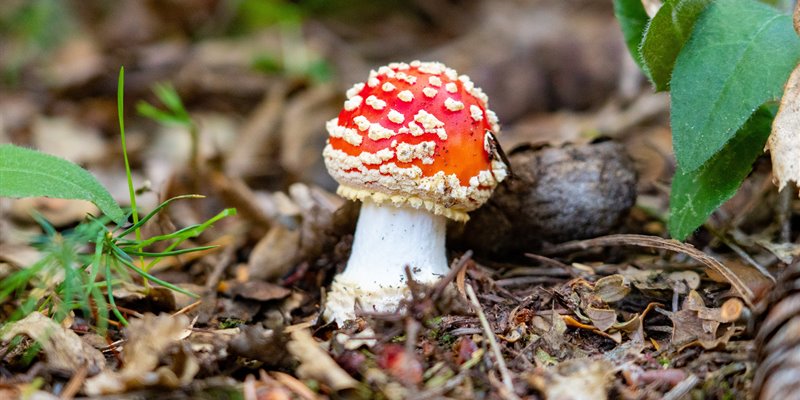
While positive affirmations can be uplifting, is it possible to have too much of a good thing? Is ‘always positive’ always helpful? In this blog, we’ll be exploring a concept known as ‘toxic positivity’, and how it affects those facing cancer. We'll also offer guidance on how to engage in conversations about cancer.
When talking about difficult or upsetting emotions, a natural reaction might be to try and counter those feelings with overly positive responses. Although the intention is to provide comfort, positivity can become toxic when it dismisses valid struggles and negative emotions. Emotions are complex, so we need to embrace the full spectrum of feelings, both positive and negative feelings.
Toxic positivity can be emotionally draining. The pressure to have a positive attitude all the time, can lead to feelings of guilt, shame, and isolation when negative emotions arise. We encourage members to express their emotions authentically and offer support without judgement.
Just over a month ago, a Community member wrote about their experience dealing with toxic positivity. Their partner had recently been diagnosed and they had just started telling loved ones.
After sharing their experience, this member asked the forum if anyone else had experienced toxic positivity and what they had done about it. This allowed for a healthy discussion to take place, allowing members to share openly about their experiences.
“I am getting that at the moment, people telling me, 'But you look so well!’ Or ‘you will get through it as you are such a positive person’”
“I am still experiencing some toxic positivity almost 5 years on from my original diagnosis.”
“I just wish people would think before they speak and realise you have gone through a life-changing experience.”
“Ahead of me starting chemo, a friend passed on the advice of a friend of hers who has been treated for cancer. The advice was that you don’t have to be positive all the time - the drugs will work anyway. I think I’ll be taking that on board”
Click here if you would like to read the full discussion.
Authenticity and vulnerability are cherished within our Community. By sharing our true feelings and challenges, we cultivate an environment where members can feel heard and understood. Together, we learn that it’s okay to have difficult days and that seeking support during these times is a sign of strength, not weakness. By talking honestly with others, we can improve our mental health and general well-being.
Have you experienced a form of toxic positivity? If so, you may want to pause reading for now and share some of your story with us in the comments below.
Toxic positivity can be tough to deal with, for both caregivers and those living with cancer. In addressing this, we are not dismissing having a positive mindset, there is a balance that can be found. The key is being real with how you are feeling each day and considering what kind of support you may need.
In reply to the question about toxic positivity, one of our Community champions made some good points and offered the following advice.
“You will find that the ‘positivity’ language will keep coming along so you just have to have selective hearing. But at other times when you know people well and know that you can be open, do try to educate them in a supportive way…
… As for the positive mindset, there is a place for it. My Respiratory Consultant (I also have asbestosis) is a very good family friend and he maintains that of all the patients he sees those who are glass-half-full people do actually add to their ability to get through their treatment and come out the other end in a better place than those who don’t have that mindset - it’s not scientifically proven, just his observation from many years dealing with cancer patients.”
Community member, Emotional support forum, Toxic positivity thread
How could you reshape your conversations to offer empathy and understanding to those living with cancer? When talking with someone who is navigating the challenges of cancer, it's important to approach the conversation with empathy. Here are a few things you can keep in mind when talking to someone living with cancer:
For more advice and information, you can follow the links below.
It can be tricky talking to people about your cancer diagnosis and cancer treatment. How people react when you tell them about the cancer may depend on different things. Many people have no experience talking to or supporting someone with cancer.
Follow the links below for more information and practical tips:
Think about who you usually talk with about important issues or difficult problems. This is probably the best person to talk to. This may be your partner, your closest friend, your eldest child, another family member, a work colleague, a counsellor or a religious leader. It may be somebody who is going through or has been through a similar experience.
Sometimes it is easier to talk with someone you do not know. You may feel less pressure to act a certain way. You may also feel safe knowing that they will not share the conversation with your friends or family.
If you feel this way, you could:
Whatever cancer throws your way, we’re right there with you.
We’re here to provide physical, financial and emotional support.
© Macmillan Cancer Support 2026 © Macmillan Cancer Support, registered charity in England and Wales (261017), Scotland (SC039907) and the Isle of Man (604). Also operating in Northern Ireland. A company limited by guarantee, registered in England and Wales company number 2400969. Isle of Man company number 4694F. Registered office: 3rd Floor, Bronze Building, The Forge, 105 Sumner Street, London, SE1 9HZ. VAT no: 668265007